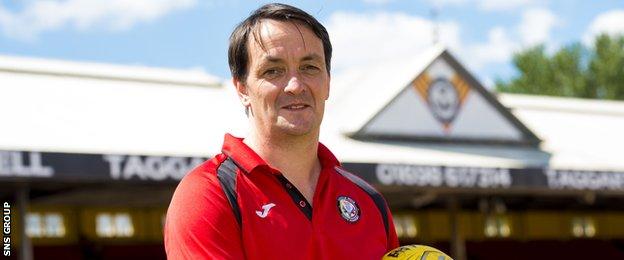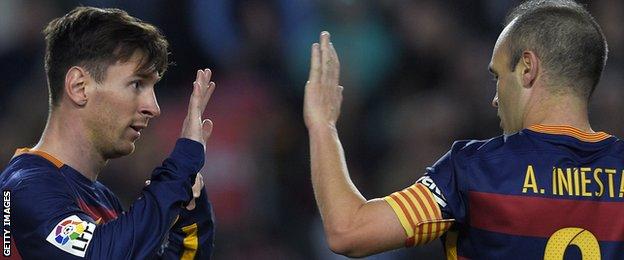Can Biobanding level playing field for Scottish youth?

Last updated on .From the section Football
Some of Scotland's top clubs are experimenting with a different approach to youth football in an attempt to develop better technical players.
Biobanding involves bracketing young players according to their stage of physical development instead of the traditional age-based categories.
It comes at a time when the national team has failed to qualify for a major tournament in 18 years and sits 51st in the Fifa rankings.
"We know we have to get to a stage where we are developing technically gifted players, we have to look at every avenue," said Gerry Britton - Partick Thistle's head of youth - who is pioneering the approach in Scottish football.
Britton has organised two 'biobanding festivals', the most recent involving the youth academies of Thistle, Celtic, Kilmarnock and St Mirren.
Each academy brought four teams, all based on their stage of physical maturity.
"What we're trying to achieve is create an environment whereby it's the technical aspects of the game the kids are developing," added Britton.
"We're trying to assist all players. Early-developers, we're trying to challenge them not to rely on their physicality, they have to work on other technical attributes and likewise for the late-developers to give them the opportunity to play against players in a similar stage of development. So it's just really trying to level the playing field for them."
Biobanding came to Britton's attention when Southampton organised an event based on the concept. The English FA has since staged tournaments over the past year as the principle behind biobanding grows in popularity.
"More and more heads of youth and academy directors are appreciating that there are significant advantages to giving players the opportunity to play against others at a similar stage of development," added Britton. "Hopefully we'll start to see more of these types of festivals to work in tandem with what we've got already."

Dr Niall MacFarlane a sports scientist at the University of Glasgow feels biobanding can have a role to play in developing young players, though he believes it would have a greater impact if introduced at grassroots level.
"I think that in elite youth football, it might not have to (catch on)," he said.
"I think in pro sport, the idea that people develop at different ages, at different stages, is really quite well accepted. The real issue for Scottish football is where we find that influx of new players.
"If you're scouting for a professional club where do you go to see them? You go to see them at boys clubs. And the real issue there is in the non-professional teams where we're trying to bring the new players in from, the onus on the coach there is really just to get results.
"They find it much easier to get results to just fill the team with the biggest players possible."
MacFarlane also points to evidence that the impact in football would be less noticeable than in other sports.
"We did a study looking at the determinants of activity levels that went to making full-time professional first-team players," he added.
"We saw that the difference is in how fast they can run and how high they can jump, but the real marker of an elite-level performer was how quickly they changed direction, and that's not a size-dependent thing.
"That ability, that range of movement becomes much more important to play football. It's probably more important for sports like rugby where there is a health and safety issue that becomes important and I would see that the Scottish Rugby Union are driving much more towards thinking about biobanding."

Nonetheless, MacFarlane is of the view that biobanding can be "really important for Scottish football".
"If we got biobanding on board and people didn't get deselected because they hadn't become physically mature at 12 or 13, they'll engage more in football," he said.
"They'll get some fun from playing the game and we'll get more opportunity to get people in to professional sports."
Britton says Partick will continue to examine the potential benefits of the project.
"It was great to see how our early developers were more effectively challenged and our late developers gaining confidence by playing in a more realistic environment for them at this stage in their development," he told BBC Scotland.
"These players obviously have great technical ability but this is often overshadowed when playing against their peers who can use their physicality to effectively exclude them from the game."